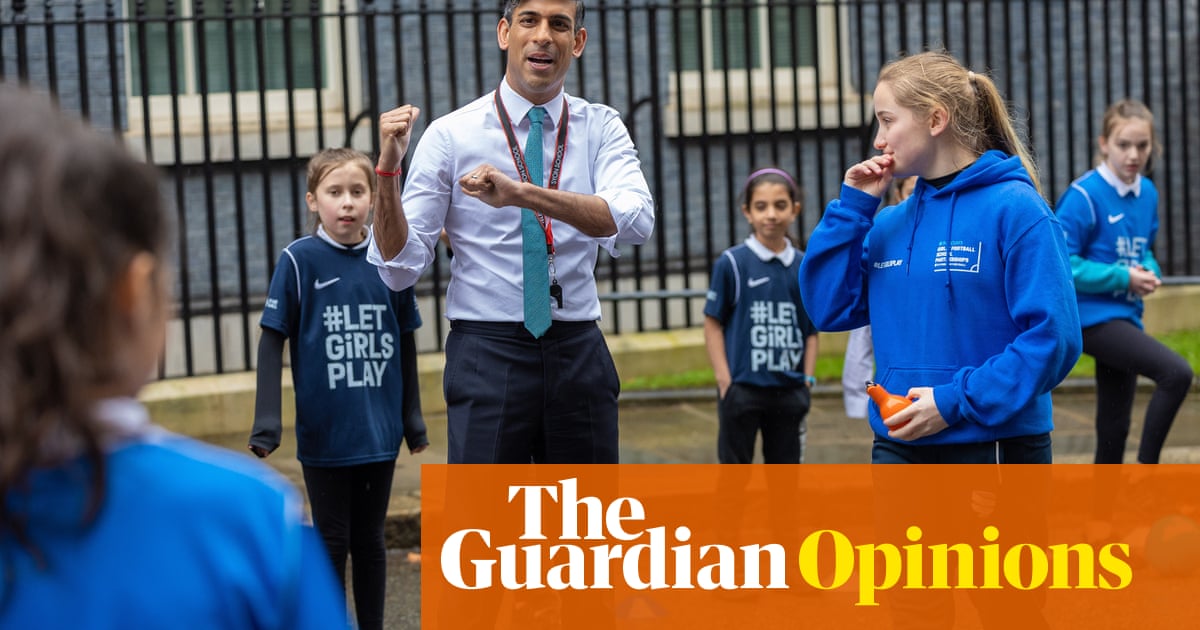Wasn’t it brilliant to see the Lionesses back on our screens recently, dribbling balls with schoolgirls outside No 10 Downing Street as the government responded to their campaign to improve PE? They are truly inspirational players and people. It felt good to relive the highs of the Euros last summer, stuck in this never-ending winter.
But before we all sink into a huge sigh of relief that our children’s health is fixed and England’s entitlement to win major football trophies in perpetuity sorted, we must pause and question what’s actually changed and whether this will improve the country’s long-term health.
Firstly, why does it take a sustained high-profile campaign from England’s elite women footballers to get the government to address something so fundamental to health? Secondly, on a closer look, what has actually changed? In England and Scotland there is already government guidance that schools should provide a minimum of two hours of physical education a week. The funding announced is not new – it continues existing levels of Primary PE and Sport Premium funding (now confirmed so late, many schools already had plans to reduce sports provision).
There is nothing additional to support the “equal access” commitment despite confused reporting suggesting there is. And the outdated existing model and concept of PE remains unfit for purpose, and another opportunity is missed to connect PE into a broader perspective and proactive strategy towards health.


